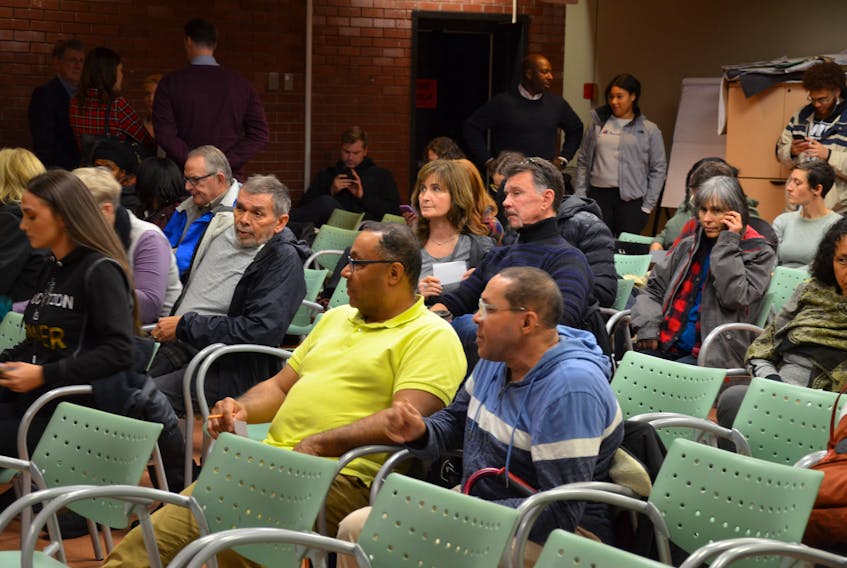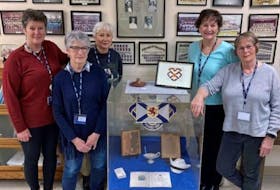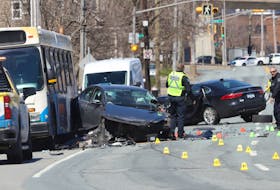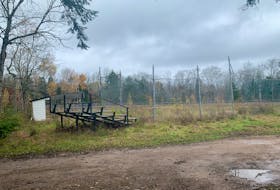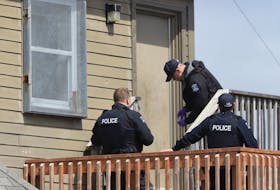Mistrust could turn to hope but there’s a long road and a lot of work between the two.
That message was brought home Monday evening as more than 100 people gathered at the Halifax North Public Library to engage in conversation intended to start the healing process and stem the historic racism that has plagued Halifax and Nova Scotia.
“Acknowledging the past, the wrongs that have occurred,” Dan Kinsella, chief of the Halifax Regional Police, said of what has to happen.
Kinsella said the “first and most necessary step,” is a public apology from the police department to the black community for the longtime practice of street checks, that unfairly focused on black youth and wilted trust in local police.
Natalie Borden, chairwoman of the Halifax police commission and one of the four panellists Monday, agreed with the necessity of an apology. Borden said an apology stops the excuses for street checks, excuses that tried to justify the practice and downplayed its impact on the black community.
Borden said that training and education of police officers must follow the necessary first step.
“Educating people’s biases and turning those biases around can be done,” Borden said.
The public meeting was promoted by 902 ManUp, a group of African Nova Scotia men dedicated to promoting a safe and healthy community. The two-hour meeting was moderated by CBC Information Morning host Portia Clark, who dished out questions for the four panellists, who also included Tony Ince, the provincial minister of African Nova Scotian Affairs, and Kymberly Franklin, a senior lawyer with the Nova Scotia Human Rights Commission, to comment on.
Street checks have been defined as an interaction or observation whereby personal and/or identifying information is collected by an officer and entered into a database. The long-standing police practice was brought into focus by the release in late March of a report from Toronto criminologist Scot Wortley, who found that blacks were almost six times more likely to be street checked than whites in Halifax Regional Municipality.
“Street checks have contributed to the criminalization of black youth, eroded trust in law enforcement and undermined the perceived legitimacy of the entire criminal justice system,” Wortley said in his report, recommending that the practice be banned outright or strictly regulated.
The provincial government first instituted a moratorium on street checks but later upgraded it to a ban after former Chief Justice Michael MacDonald submitted a legal opinion to the Nova Scotia Human Rights Commission that the practice was illegal.
Franklin called street checks and their legacy “very hurtful,” saying the practice has promoted distrust and fear.
“This is the tip of the iceberg,” Franklin said. “There are other problems besides street checks.”
Ince said street checks represent only one piece of a larger problem that has to be dealt with.
“I’m pleased that government, police and the community are all in the same room to talk about it,” Ince said. “We have a long way to go.”
Kinsella, who took over the job as Halifax’s top cop in July, said he has been talking with the black community from the time he arrived in the city.
How do you repair trust when no trust existed in the first place, asked one audience member during the question-and-answer period.
Kinsella announced at a police commission meeting earlier in the day he would deliver the long-awaited public apology to the black community on Nov. 29 at 11 a.m., at the Halifax Central Library.
The chief said the many community members and leaders he has met with will be invited to the public apology.
“It’s a powerful way to move forward but it’s much more than just an apology, it’s the post-apology work that we will build into the plan to make sure that collectively we can move forward.”
Justice Minister Mark Furey has also promised an apology to the black community on behalf of the province.
Chief Supt. Chris Leather of the RCMP Halifax Division said an apology is still under consideration but it would have to take into account the implications for a wider apology that reaches beyond Nova Scotia.
“Street checks, of course, is an issue for a number of jurisdictions in a number of provinces,” Leather said.
He said the RCMP will have something nailed down within weeks.
RELATED:
- Street check dialogue shifts to what's next at public meeting
- Nova Scotia bans street checks
- African Nova Scotian group boycotts street check meetings
- GAIL LETHBRIDGE: Sorry, but we can’t apologize for street checks
- 'Intelligence value:' Checking into street checks in Halifax
- No apology: Sorry seems to be the hardest word in Halifax street check conversation
- Driving while black could still be an issue despite street check moratorium

